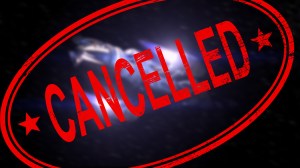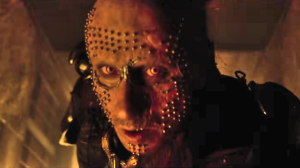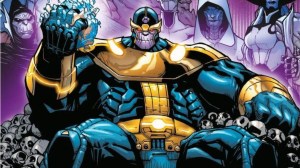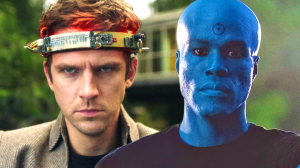Announced earlier this week was the news that SYFY would be developing a new TV series that borrows the name of George Romero‘s zombie film Day of the Dead, the third entry into his universe featuring the decline of civilization after the dead started coming back to life. While the series might be embracing the famous title of the 1985 film, its initial description has little in common with the events of that film, so with multiple TV series airing across multiple networks featuring the living undead, it’s safe to say there’s no real reason we need this new “Day of the Dead” in the first place.
Videos by ComicBook.com
A number of zombie movies predated 1968’s Night of the Living Dead, featuring various explanations and manipulations of what a zombie was and how it came into existence, with Romero’s film arguably becoming the most successful and setting the standard for what it meant to be a zombie. Primarily, it was a reanimated corpse that lumbered around and feasted on the living, with a bite seeing the spread of this malady to its victim. While the premise might get tweaks to fulfill various narratives for different mediums, this has been the zombie mold for more than 50 years.
What makes Romero’s films so captivating is the jumps in time between each story, as Dawn of the Dead debuted 10 years after Night, Day coming nine years after Dawn, and Land of the Dead arriving 20 years after Day. The jumps in time might not be a direct one-to-one comparison between the films and the real world, but it’s clear that each film focuses on a different phase of the crumble of society.
This new Day of the Dead series is set to focus on six survivors experiencing the first 24 hours of a zombie invasion, which fundamentally conflicts with what we see in the film. Narratively speaking, the description of the 10-episode series falls much more in line with Night of the Living Dead, so to embrace the name of a specific chapter that is distinctly in the franchise is confusing.
While Night explores the initial appearance of these ghouls, Dawn depicts humanity’s realization that this isn’t something that can be contained, with its protagonists fleeing the city and finding refuge in a shopping mall. As they attempt to merely continue their existence, a major theme is the difference between “living” and “not dying,” as our heroes ultimately realize that, while they could stay alive in a mall, they would need to leave that safety behind in hopes of finding other survivors if there’s hope of rebuilding society.
By the time Day rolls around, a group of survivors, comprised of scientists, members of the military, and some civilians, has found safety in an underground bunker and hope to find a permanent solution to the threat. Understandably, it ends up being the tensions among the survivors that leads to their own downfall, as the various groups of survivors attempt to obtain authority among their peers. For a series that calls itself “Day of the Dead,” its description sounds like it has no connective narrative or thematic tissue, as the depictions of these quests for power within the first 24 hours of the outbreak seems highly unlikely.
Another frustration with this new series is that The Walking Dead, Fear the Walking Dead, iZombie, Z Nation, Black Summer, Santa Clarita Diet, and many more zombie shows have proven how diverse the subgenre, whether it’s inspired by source material or entirely original, has been in recent years. With Day of the Dead being one of the most famous zombie movies, it’s likely that someone will be more apt to tune in to the new series, likely leading to confusion about how different it is from the movie it is seemingly based on. Case in point, two loose remakes of the 1985 film have debuted that had only a tangential connection to the source material, with 2008’s Day of the Dead and 2018’s Day of the Dead: Bloodline both sitting at only 13% positive reviews on aggregator site Rotten Tomatoes. By naming itself after such an iconic film, it’s only setting itself up for failure, while giving it a unique name could have inspired a passionate community of fans.
No matter how talented the creatives behind this new Day of the Dead series might be, initial reports about the endeavor are far from promising, as nothing about its description evokes anything familiar to what Day of the Dead stood for, while also having to compete with multiple other zombie series that potentially have covered similar territory. Much like one of its undead ghouls, this new series feels much more like a reanimated husk of what made the Romero film such a classic more than a loving tribute to the godfather of the modern zombie film.
Day of the Dead is slated to land on SYFY next year.
What do you think of this new series? Let us know in the comments below or contact Patrick Cavanaugh directly on Twitter to talk all things horror and Star Wars!








